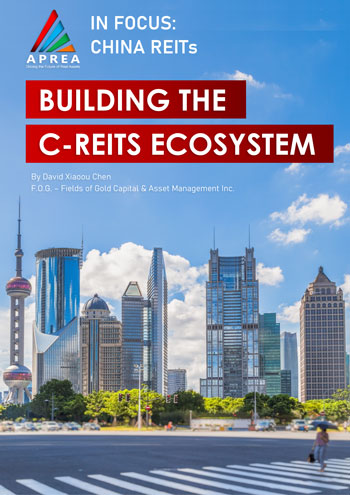
Stay ahead of the curve with APREA's exclusive monthly update tracking the performance of China REITs.
APREA C-REITs Roundup provides the latest info and developments in C-REITs. Available for APREA members only, this important resource is your key to navigating the landscape of C-REITs.
Download the Report (English) Download the Report (Chinese)
Read More
Stay ahead of the curve with APREA's exclusive monthly update tracking the performance of China REITs.
APREA C-REITs Roundup provides the latest info and developments in C-REITs. Available for APREA members only, this important resource is your key to navigating the landscape of C-REITs.
Download the Report (English) Download the Report (Chinese)
Read More
APREA C-REITs Roundup is a monthly update that tracks the performance of China REITs. Stay informed about the latest info and developments in C-REITs, exclusive for APREA members.
Download the Report (English) Download the Report (Chinese)
Read MoreCushman & Wakefield’s 2022-2023 Asia REIT Market Insight report investigates the growing Real Estate Investment Trust market in Asia, examining the primary drivers and state of play in key markets including Japan, Singapore, Hong Kong SAR, mainland China and India.
Overall, the Asia REIT market has experienced declines in stock prices and overall market values in 2022, predominantly due to the influence of the U.S. interest rate hikes. Despite this, the Asia REIT market has still performed better than its U.S. and European counterparts.
Key highlights:

China's first REITs were launched in 2021, following earlier exploration of real estate securitization. As of March 2023, 27 REITs have been listed in China, covering various real estate infrastructure types. The sector is transitioning from volatility to a more stable market, and opportunities for private real estate investment funds in China are expanding.
Looking ahead, Chinese REITs are expected to diversify their assets, improve valuation techniques, enhance management structures, and optimize leverage restrictions. China aims to build a REITs ecosystem based on international standards, with collaboration between local and international stakeholders playing a crucial role in its development.
Download the Report Read More